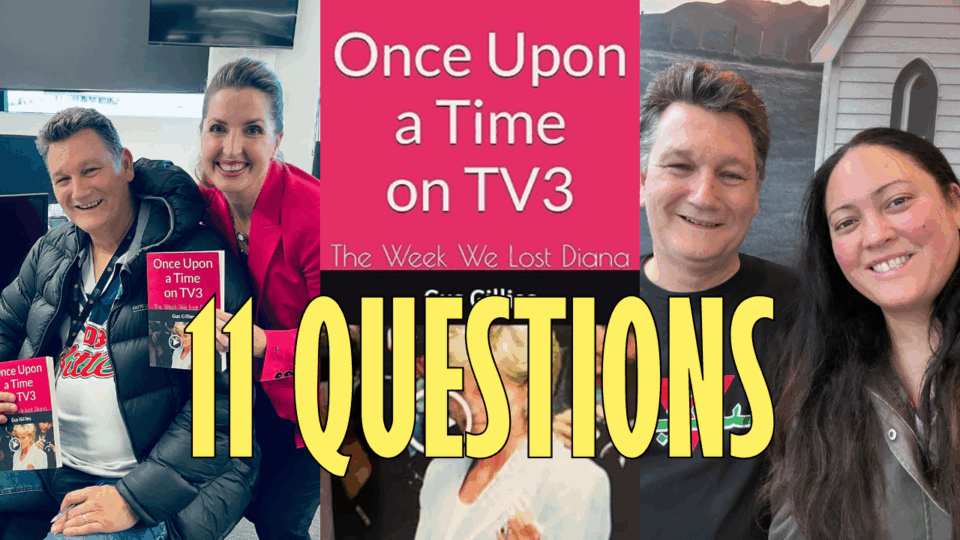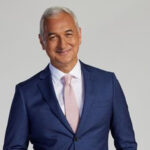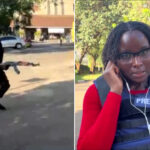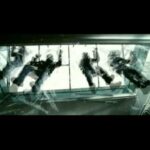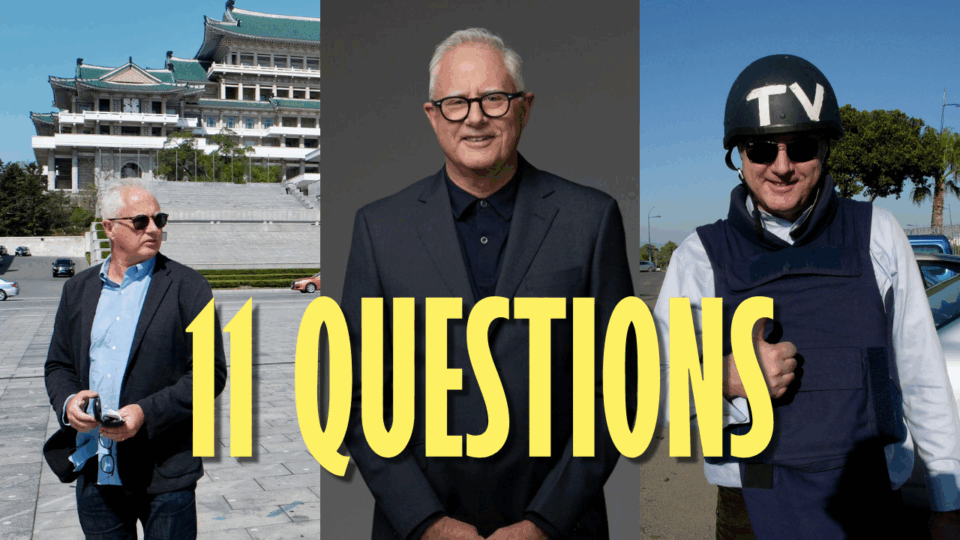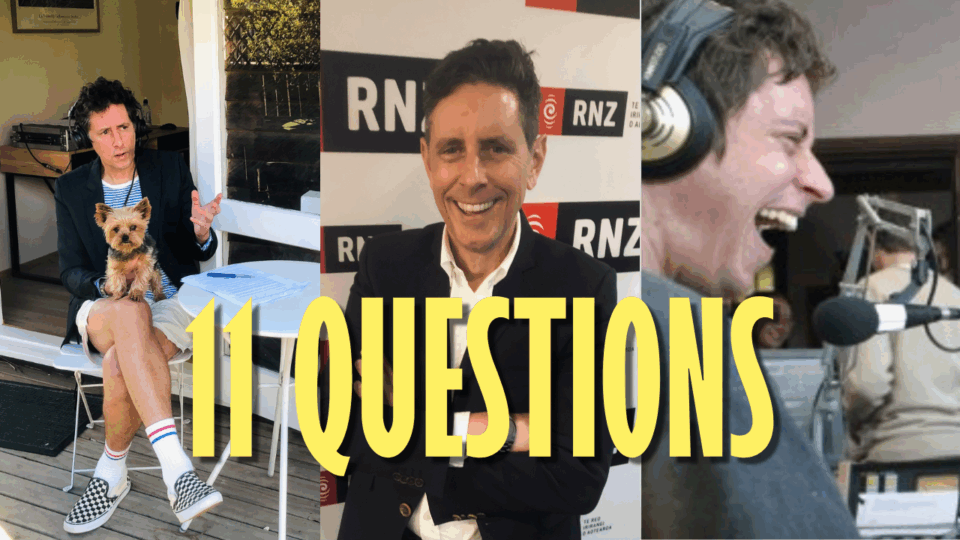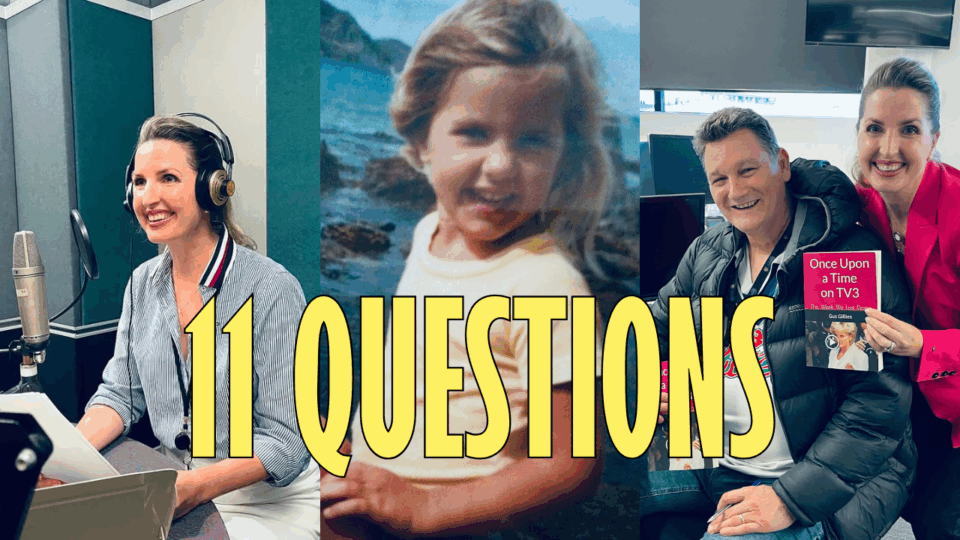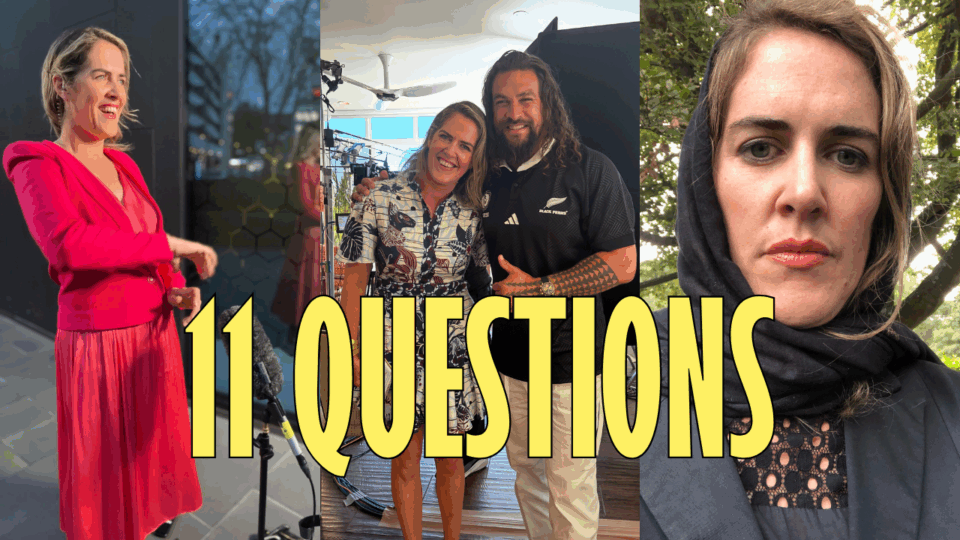Each week on Dan News’ 11 Questions, we shine a light on the people shaping the media industry. From their inspirations and career highlights to their views on where the sector is headed, the series offers an insight into what makes them tick.
This week’s guest is Angus Gillies, a journalist, author and legendary news producer.
He was thrown in at the deep end by his cousin, Amanda Gillies, who previously answered the same questions.
In our chat, he reflects on the influence of his late father, shares his views on the challenges facing journalism today, and opens up about everything from his love of The Wire to why his wife thinks “everything’s weird” about him.
When did you first become interested in media, and why?
I became interested in writing before I became interested in media. I have always been a huge bookworm, and I started writing fiction, mainly short stories, in my teens. I arrived back from overseas when I was 20, and my dad asked me to fill in for a couple of weeks at the Gisborne Herald, where he was the editor, to cover a staff shortage.
I’d always worked there in the school holidays and had written articles over the years. The person I was covering never came back, and I got the chance to carry on at the newspaper. I figured learning about journalism would tighten up my writing generally.
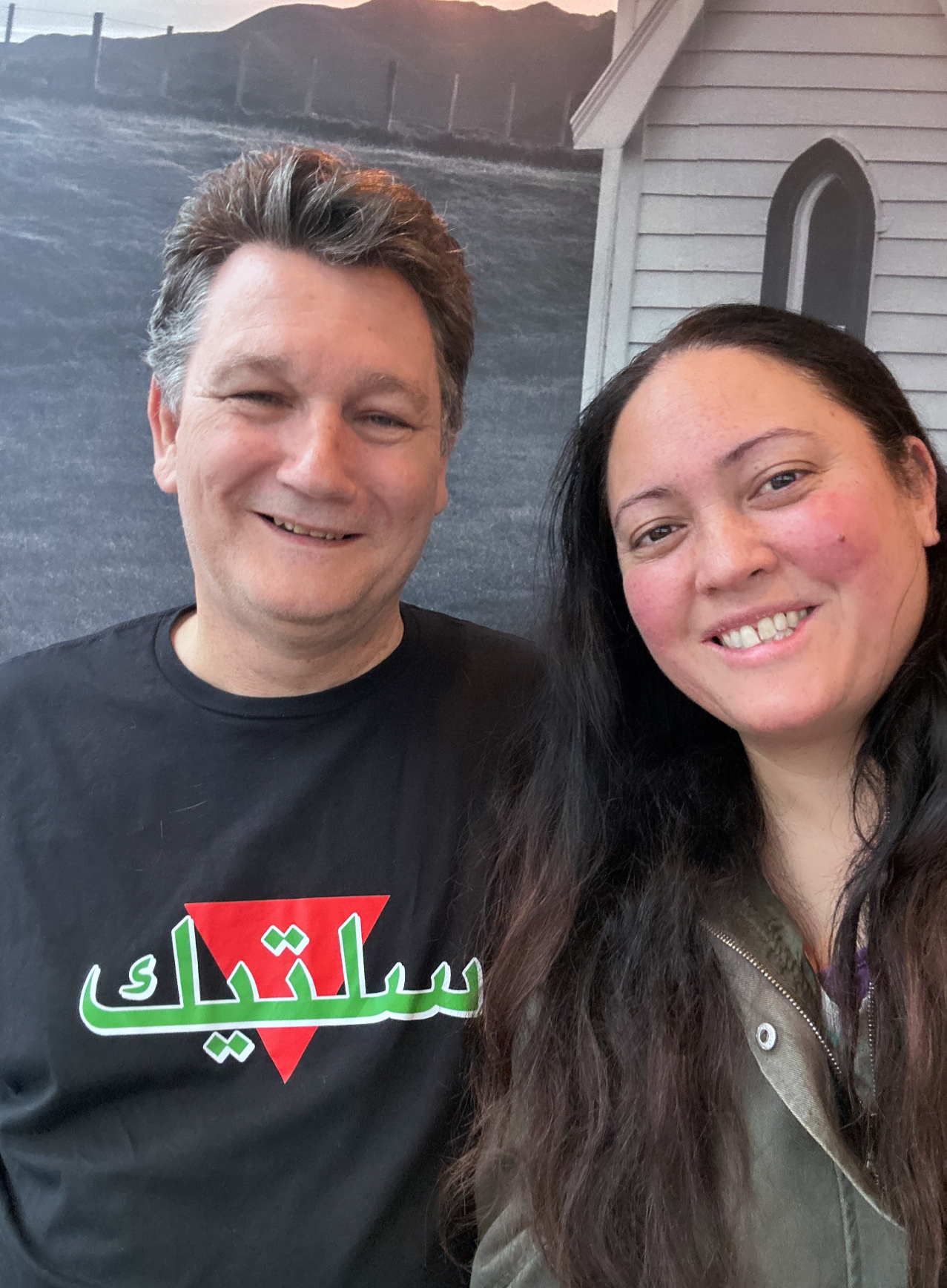
Who are some people you admire or look up to as role models, either in your career or in life in general?
My father, Iain Gillies, who died this year, was a huge influence on me, as is my wife, Tui. Heroes include the writers Knut Hamsun, Paul Bowles, Jim Thompson, Charles Willeford, Charles Bukowski, Jean Rhys, and Han Kang; the musicians Syd Barrett, Roger Waters, Bob Dylan, Bob Marley, James Brown, The Beatles, and Van Morrison; and in sport, Muhammad Ali and Pelé.
You can see my tastes go back to when I was a child and a teenager.
It’s an old question, but I love it: If you were to invite four people to dinner (living or dead), who would you choose and why?
Tui, Dad, Mum, and either one of my kids or one of my siblings. I’d rather hang out with people who are close and important to me than with people who are famous or even heroes of mine.
What is a memory from your career so far that will stick with you well after you retire?
One night, when I was the producer of Nightline, I was living on my own, and the phone rang in the middle of the night, and a chill ran down my spine. It was Dad, and he told me to turn on CNN because a plane had just been flown into the Twin Towers.
We watched it unfold for a while, not saying much, and then I rang Carolyn Robinson, who was the Nightline presenter, woke her up, and told her we might have to go into work to do some newsbreaks.
Again, we watched it for a while, sitting on the phone, not saying much. Then I rang the news boss, Mark Jennings, and he was just arriving at work, as was our foreign editor, Max Hayton, and they had arranged to take live rolling coverage from America, so we didn’t need to go in straight away.
Caro and I went into work first thing in the morning, and I went home for a sleep halfway through the day, but Caro stayed there until we went to air that night. I remember the images didn’t look like reality. They looked like computer graphics from a blockbuster action movie.
Tell us some of your interests outside of work.
I used to love playing football, but my knees won’t let me anymore.
I follow the Warriors avidly (and still get to do the occasional match report on Three News). I still love reading, mainly in the bath, and I persist with writing with mixed results. I love music too and play bass and guitar for fun.
What is your favourite movie and television show? (I’ll allow you to choose a runner-up for both… just to be nice.)
TV shows: The Wire blew me away when it came out. I also make a beeline for any of the shows made from Michael Connelly’s crime books, such as Bosch.
Favourite movies? When We Were Kings, Unforgiven.
What are some of your most played songs?
Take Me To The River (Al Green’s original version), Just My Imagination (The Temptations), Get Back (The Beatles), Golden Years (Bowie), Sweet Nothings (The Velvet Underground), Death Don’t Have No Mercy (Rev. Gary Davis).
Give us a random fact that people may not know about you.
I just asked Tui, “What’s something weird about me?” And she said, “I don’t know. Everything’s weird about you.”
A couple of harder ones. How would you describe the state of the media industry both locally and internationally at the moment, and do you have any suggestions about how things need to change?
There is still incredible journalism being done, and it seems more and more of it is appearing on all sorts of different platforms. That’s fantastic in one aspect, but, as someone who is involved in trying to create it and compete with it, also terrifying.
And it is also sad because so many people are turning away from what I would consider good journalism, only to accept something that’s trying to hoodwink or con them.
Most of the stuff I see on social media I suspect is AI-generated, particularly the videos. Then we have countries like Israel and Russia just lying to us about their intentions, just trying to stall everyone so they can kill a few more people before they’re stopped.
It seems like the free world didn’t know how good we had it for a very long time, and now some very dark forces are in play, intent on restricting our freedoms and forcing us to do their bidding.
I hate seeing governments acting as though they have the right to kill, maim, and enslave human beings, particularly children, and then getting away with it.
I also hate other countries enabling that behaviour while making a song and dance for the cameras about being humanitarians. I’m talking about America, and, to a lesser degree, Europe.
Where do you see AI fitting into a modern media industry? What do you personally see as the advantages and disadvantages of its use?
AI is great for searches and broad overviews. But we have to remember that AI, as yet, doesn’t have a soul, and, while some would say humans don’t have a soul either, AI doesn’t have a full understanding of the human experience yet.
My wife, Tui, is a Tongan tapa cloth artist and did an exhibition in which she fed her Pasifika art into AI to see what it came up with.
Some of the creations that never made the exhibition were very scary. Where she had painted an underwater statue in a Polynesian style, it would have a creepy-looking, grinning moron with a hundred teeth hiding in a cave. There was something about it that gave you the creeps.
My brother, Duncan, texted me the other day with a little thought to ponder: “Do you think we’ll get to the point where people ask ChatGPT to write their suicide notes?”
It’s a great and very pertinent question. I answered with a laughing emoji and the word “yup.”
We have to be careful with AI. It will run rings around us very soon if it isn’t already.
Who from the industry would you like to see answering these eleven questions?
Paul Yurisich and Paul Mayow.
Paul and Paul, we will be in touch!
To our readers: Who would you like to see answering 11 Questions? Send us your ideas — or have a go at answering them yourself.
Email: news@dannews.tv
Note: Once Upon a Time on TV3: The Week We Lost Diana
Angus Gillies has also written a book about working in TV3’s newsroom when Princess Diana was killed in a car crash in Paris. It’s a great book (I own two copies!) and can be purchased here.
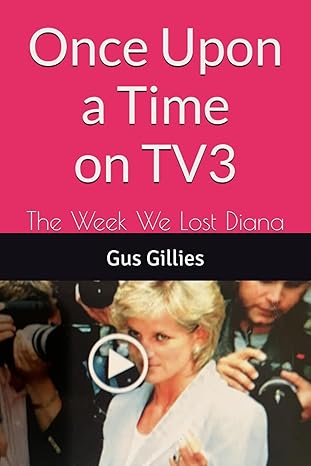 Princess Diana’s death in a Paris car crash was one of the defining news stories of the 1990s. The world watched as the beloved princess, mother and humanitarian was pursued to her death by paparazzi, in what felt like a tragic modern fairy tale playing out in real time. At the same moment, Angus Gillies had just begun his new role as producer of TV3’s late-night news show Nightline. The scale of grief and mourning that followed caught newsrooms off guard, while the story itself evolved rapidly — from the details of the crash investigation to the Royal Family’s uncertain response. In 2024, TV3’s newsroom was closed for good after Newshub Live @ 6 went off air, with Nightline itself having been replaced years earlier. Gillies’ book, Once Upon a Time on TV3: The Week We Lost Diana, revisits an extraordinary week in broadcasting and remembers what was once the liveliest newsroom in New Zealand.
Princess Diana’s death in a Paris car crash was one of the defining news stories of the 1990s. The world watched as the beloved princess, mother and humanitarian was pursued to her death by paparazzi, in what felt like a tragic modern fairy tale playing out in real time. At the same moment, Angus Gillies had just begun his new role as producer of TV3’s late-night news show Nightline. The scale of grief and mourning that followed caught newsrooms off guard, while the story itself evolved rapidly — from the details of the crash investigation to the Royal Family’s uncertain response. In 2024, TV3’s newsroom was closed for good after Newshub Live @ 6 went off air, with Nightline itself having been replaced years earlier. Gillies’ book, Once Upon a Time on TV3: The Week We Lost Diana, revisits an extraordinary week in broadcasting and remembers what was once the liveliest newsroom in New Zealand.

